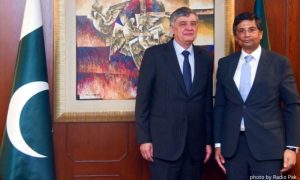ISLAMABAD: Tourism experts on Wednesday underscored the need for increased investment in the tourism industry to foster a sustainable recovery from the COVID-19 pandemic.
According to a report released by the World Travel and Tourism Council (WTTC) on World Tourism Day, a focus on the education of stakeholders, front-line staff, and consumers can pave the way for a more resilient post-lockdown tourism model.
Key figures in the event, including WTTC CEO Julia Simpson, Special Advisor to the UNWTO Anita Mendiratta, and Saudi Arabia’s Vice-Minister of Tourism Haifa Al Saud, all emphasized the pivotal role of education in promoting sustainable tourism.
Julia Simpson, CEO of WTTC, highlighted the global significance of the tourism industry. Among her points, she mentioned that for every 10 jobs worldwide, one is linked to travel and tourism. By the end of 2023, the global tourism sector is projected to be valued at US$9.5 trillion. Importantly, tourism plays a substantial role in poverty reduction and contributes less to global carbon emissions than commonly perceived, accounting for only eight percent.
Investment in Sustainable Tourism
With global travel on the path to recovery, Anita Mendiratta, Special Advisor to the UNWTO, stressed the urgency of investing in the industry’s sustainable future. She emphasized that tourism has the unique capacity to connect people and facilitate self-discovery while fostering mutual understanding.
Mendiratta urged collective and energetic action on climate change, drawing a parallel with the mobilization against COVID-19.
Haifa Al Saud, Saudi Arabia’s Vice-Minister of Tourism, expressed the collective responsibility of attendees to endorse tourism that aligns with the principles of benefiting the planet, promoting peace, and driving prosperity.
Speakers unanimously endorsed education as the means to inform both the public and private sectors about sustainable development practices, equip travel and hospitality personnel with essential skills, and encourage responsible and conscientious travel behavior among consumers.


























